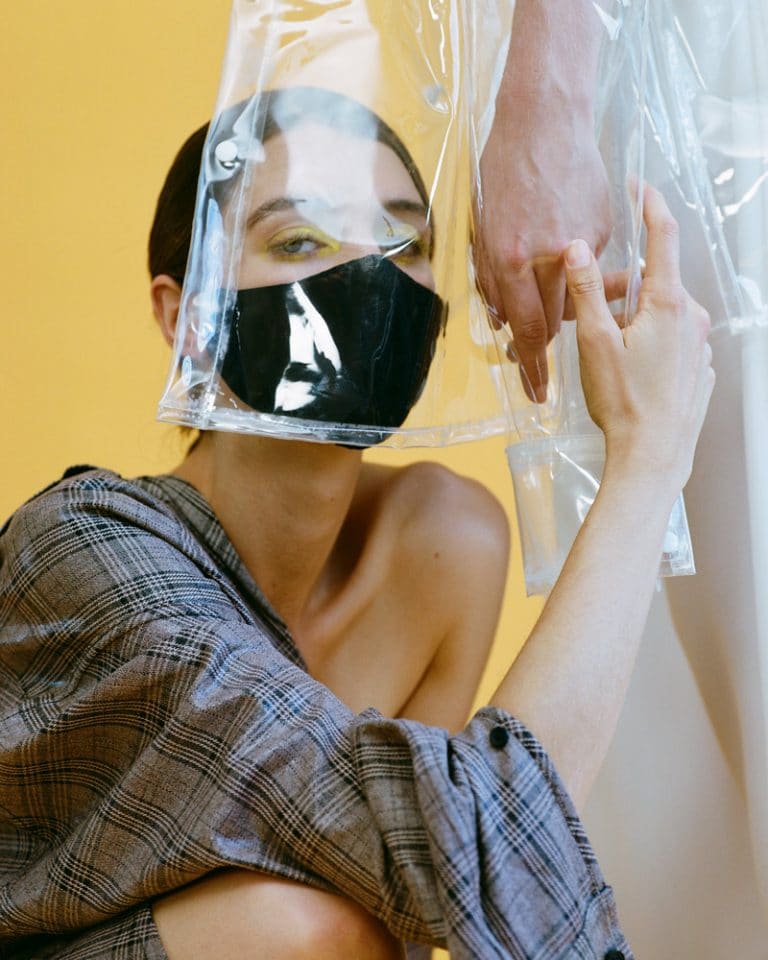
Opinion
What can a robot that feels pain tell us about the future of AI after COVID-19?
By Tom Keown
Opinion
What can a robot that feels pain tell us about the future of AI after COVID-19?
By Tom Keown
Updated May 18, 2020 at 12:31 PM
Reading time: 3 minutes
AI
May 14, 2020
In February 2020, at the headquarters of the American Association for the Advancement of Science (AAAS) in Seattle, a team of researchers from Osaka University, Japan, presented to the world an alarmingly realistic robot-child programmed somewhat sadistically with the ability to ‘feel’ pain.
Named Affetto by the team, the being possesses complete facial features, a full head of human hair and hides its cutting edge robotic interior under synthetic ‘skin’. This skin contains a pain nervous system that allows Affetto to respond as any human would when inflicted with pain.
But is there any logical reasoning behind instilling a sense of pain into a mechanical being that seemed to be working just fine without it?
According to the researchers responsible, the ultimate goal is to create a deeper sense of connection between human beings and their AI counterparts. This would, in turn, assist in robots successfully fully assimilating into contemporary human society.
Since his inception in 2011, Affetto has been continuously tweaked and added to. Affetto not only possesses facial expressions that are as nuanced as any humans’, he can even simulate empathy towards others through a ‘mirroring system’ based on the functioning of the human brain. The addition of the pain nervous system is only the next step in this ongoing experiment, and will most likely not be the last.
When explaining his work, professor Minoru Asada, lead researcher in the Affetto project, stated: “In Japan, we believe all inanimate objects have a soul, so a metal robot is no different from a human in that respect—there are less boundaries between humans and objects.”
Robots have already been deployed at nursing homes, offices and schools in Japan in an attempt to support a shrinking workforce and ageing population. However, it seems there is still some way to go in persuading the rest of us to get over a commonly shared feeling of mistrust or downright fear regarding any kind of man-made technology that is on a par with or even has the potential to surpass human capabilities. This rings particularly true in the case of Affetto, where the goal is to implant into metal and coding qualities that until now were seen as strictly reserved for flesh and blood.
Professor Asada made his intentions clear when he said: “Of course I think one day we humans will create robots that are difficult to distinguish from humans.” If popular culture is a reflection of a society’s collective psyche, then it tells us a lot about our relationship towards AI technology. Over the years, the ‘man-made creature gets too intelligent for its own good’ trope has been everywhere; dating as far back as Frankenstein and persisting into contemporary iterations with examples like Ex Machina.
In this case, the old saying that ‘art imitates life’ seems particularly valid. Stephen Hawking’s statement that “the development of full artificial intelligence could spell the end of the human race,” sounds like it could have been pulled from a movie script, but is in fact a quote from a recent interview the scientist gave with the BBC.
His reasoning is that while more primitive forms of AI technology, including the type that enables him to speak, have been nothing but useful, he fears any advancements. We humans would have no chance of keeping up with technology that isn’t bound as we are to slow biological evolution.
Others have decided upon a more positive outlook. The amount of good that could be achieved as a result of utilising robotic technology is immeasurable and could create more of a drastic impact on global issues than we can comprehend. Currently, the number of global coronavirus cases has passed the 4 million mark. Health workers across the world have found themselves woefully under-resourced to cope with a pandemic of this magnitude, and robotic technology has been looked at as a way to deal with staff shortages and reduce infection.
In recent weeks, countries such as Italy and Ireland have joined Japan in introducing robot ‘nurses’ into their hospitals. They are there in a supportive capacity, collecting cleaning and delivering supplies, and ultimately reducing human workers’ exposure to the virus. In this current crisis that the whole world is facing, the areas where robots could make themselves useful in order to avoid exposing humans to unnecessary danger have become obvious.
Still, nothing can come close to the human connection between doctor and patient, and it’s something that a robot could only ever imitate, not create. However, Affetto is an example of how close robots can get to the real thing. The hope is that through the experience of pain Affetto will come to a deeper understanding of the human experience, making him a better caregiver and overall support system.
Statistics show that resistance is futile—the robots are already here. According to the International Federation of Robotics (IFR), the number of operational industrial robot jobs increases by 14 per cent annually. More than 70 per cent of people would be willing to augment their bodies in some way to make themselves more employable. Affetto is an example of how robots themselves can be augmented to cater to our needs. At a time such as now when our needs are so great, we cannot overlook the complex AI technology that is ready and waiting to help us.




